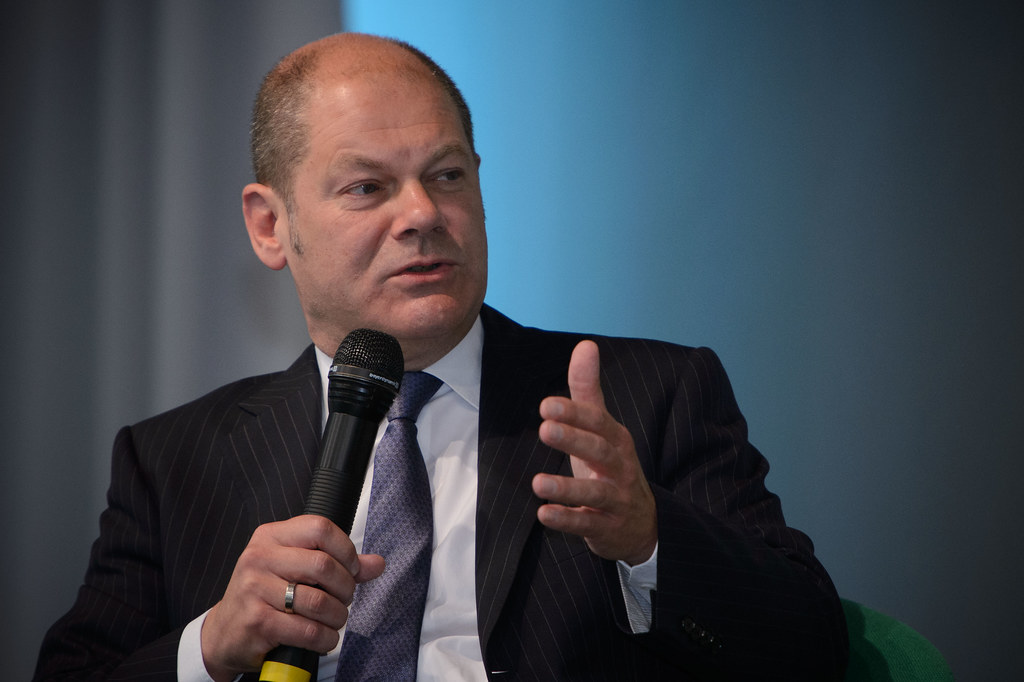Here are the ends and challenges of Scholz’s trip to Ukraine and Russia

Scholz will have to deal with yet another request from the Prime Minister of Ukraine, Volodymyr Zelenskyy, for German weapons. Pierluigi Mennitti's article from Berlin
It's time for Olaf Scholz. It is up to the new German Chancellor to measure his own dimension (and that of his country) in the mediation scenario that Europe is trying to build around the Russian-Ukrainian crisis and Putin's ambitions to redesign the geopolitical balance between the Neva and the Spree . That is, along that tectonic threshold that thirty years ago began to slide towards the east freed from the Soviet yoke and which now the Russians would like to bring as far west as possible. The inglorious and chaotic withdrawal of the US and its Western allies from Afghanistan must have convinced Putin that the right time has come to re-discuss everything.
Meanwhile, he amasses troops on the border with Ukraine and practices military maneuvers with Belarus and on the Black Sea. Faced with this flexing of muscles, Chancellor Scholz also asked Angela Merkel for advice on how to negotiate. The former chancellor found an aggressive black dog waiting for her with the Kremlin leader on the day of their first meeting. Putin knew of his apprehension for dogs and – the legends tell – he managed to make his interlocutor very uncomfortable. But in the sixteen years of the Merkel era, relations between the two have been cordial and productive, as evidenced by the former chancellor's stubborn support for Nord Stream 2, even if not as comradely as those with comrade Schröder.
Scholz, who is not afraid of dogs, will not come face to face with a Caucasian shepherd, but a place of honor at the other end of Putin's large table, a piece of furniture – apparently of Italian manufacture – which has now become central in this phase of newfound cold war. In the collective imagination (which in the days of Instagram and other social networks is made up of photos) it has now replaced the pseudo-erotic symbolism represented by Putin's Latvian, confirming the old saying that it was better when it was worse.
If from the United States a somewhat dozing Biden launches every other day alarms of impending Russian invasions (the latest message of this night is that the US services believe an attack on Tuesday is probable, in conjunction with Ukrainian maneuvers that could provide a pretext, but at least after the Valentine's Day celebrations are over), from Berlin the less pro-Russian minister of the government throws new water on the fire. In an interview with public television Ard, Annalena Baerbock admits that the situation is "absolutely precarious", but adds that, from information in her possession, "there are no signs that a military conflict has already been decided". Space therefore for the umpteenth European mediation, this time entrusted to the calendar of Olaf Scholz. Today Kiev, tomorrow Moscow.
In the first Ukrainian stage, the new chancellor will have to deal with yet another request from Prime Minister Volodymyr Zelenskyy for German weapons. Evidently the helmets, sent in contempt of danger (and ridicule) in recent days, were not appreciated. But they are those requests that are made as a conditional reflex and to tickle internal public opinion and perhaps to wrest something else out of other fields. Berlin does not intend to send even a scacciacani to Kiev, with the excuse that Germany does not sell weapons in crisis areas (a concept quite loosely in German arms trade policy), but is willing to introduce multi-zero investments in transition projects energy and development of renewable sources, first of all hydrogen. Make love, don't make war.
Zelenskyy has more pressing urgencies, such as making sure that tomorrow he will still lead an independent country, but the truth is that Berlin is not only attentive to Moscow's touchyness, traditionally geopolitical and historical remorse (which should also apply to Ukrainians ): the problem is that every time the Germans have put their nose into the Ukrainian affairs of recent years they have found themselves embroiled in situations that are much more tangled and clear than expected. The Julija Tymosenko case is just one of many.
Then it will be the turn of Moscow, the Kremlin and the plank. The German media and the government sherpas who planned the meeting describe the chancellor's two eastern stages as a diplomatic mission in the name of peace and Europe. But the Europeans are close to each other, starting with those who declare themselves the most friends. So from Paris it is made known (via Frankfurter Allgemeine Zeitung ) that Macron welcomed the "perfect correspondence of the French and German positions" after a phone call with Scholz on Saturday evening. And that the Elysée, through an official statement, has leaked "a certain relief at the fact that Scholz is not aiming at a diplomatic initiative that goes beyond the mantra of de-escalation". In short, in the words of the Faz, Paris "expects President Putin to give clearer signals from the Chancellor's visit than a week ago".
Signals in the wake of the negotiation set by Macron. Thus personal ambitions and jealousies enter by right into the cauldron of a phase in which certainties are few and there is so much propaganda.
This is a machine translation from Italian language of a post published on Start Magazine at the URL https://www.startmag.it/mondo/olaf-scholz-ucraina-russia/ on Mon, 14 Feb 2022 08:04:26 +0000.
